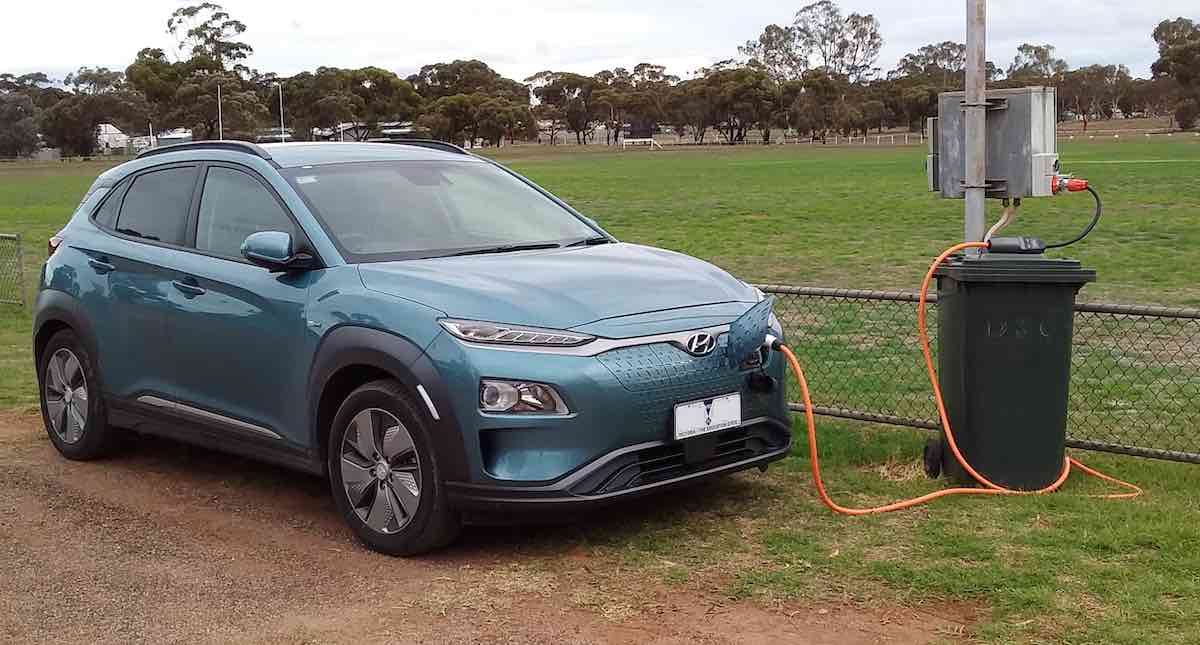
BRYCE GATON
Aug 4, 2023
As the EV transition speeds up, I get an ever increasing number of requests for public information sessions. One common question that pops up in those sessions is: “How long does it take to charge an EV?”
When I sometimes flippantly reply with “between 50 hours and three minutes,” people seem to think I have gone mad – until I explain the more serious point that EV charging is no longer the one-size-fits-all model of a service station where you add refuelling time and travel distance to your trip.
Instead, you choose the charger and speed you want depending on what you are doing and where you leave the car.
Fifty hours, by the way, is how long it might take to do a 100% recharge of a 90 kWh battery car via the slowest possible charger – and the three minutes is how quickly the fastest DC chargers can theoretically replenish 100 km worth of range if that is all you need to complete your journey.
The key is that the paradigm is different: EV charging mostly happens at your destination while you do something else. Unlike a fuel station, you don’t need to stand beside an EV when it’s recharging.
You therefore choose the charge method based on how long or often you will be at your destination, and how much added range you want. You are in fact are shifting ‘refuelling’ from being part of your own time into the 96% of the time the average car isn’t being used.
If you are at home and doing very little in the way of distances – you’ll most likely choose to always recharge via a power point (Mode 2). Same for staying at a holiday rental/BnB – overnight charging from a power point will still get you 12 – 14 hours of charge time.
Even at the slowest 8 A rate from the portable charger that came with the car (see charging table below), you’ll get around 150 to 160 km worth of charge. At a caravan park 15A outlet, that doubles to 300 km or more – provided you pack a portable charger with selectable higher charge rates.
Given you rarely roll into your destination with less than a 20% to 30% charge, caravan parks will return you to 100% overnight and even a BnB recharge of 160km will get you to a faster AC or DC charger the next day.
(As compared to rolling into a small country town after the petrol station has closed for the night – you can top-up your EV without going anywhere except to bed!)
Same for home charging my Kona at 32A/7.4kW. My personal time spent charging is 20 seconds, as it takes 10 seconds to plug it in at night and another 10 to unplug in the morning.
At 32A, even a zero to 100% charge (which I don’t think I have ever done – 20% to 80% being my usual need), it would still be all done whilst I slept.
If I were to ever need something in a hurry, I could go to the DC charger near me (they are starting to pop up all around many cities and towns now, as well as out in the regions), but I very rarely see anyone using it as, like most EV owners, I find overnight charging is perfect for my local commuting needs.
I am therefore going to advance the theory that how much ‘Range Anxiety’ people might express is simply the measure of how far they’ve moved in making that destination charging vs petrol station paradigm shift.
Once you move your thinking to ‘refuelling’ choices based on a time-based, destination charging mentality, range anxiety no longer exists … and your level of it reflects how far you’ve gone in giving up the idea of needing to make time during a trip to attend your vehicle whilst it refuels.
Even on a long highway run, you still don’t lose as much time as the EV naysayers might have it. Instead of spending time to refuel and pay, then move your car to a nearby parking spot to then go inside for coffee etc – you park an EV in the charging spot, plug-in and immediately leave it to do its thing whilst you go inside and do yours.
.jpg)